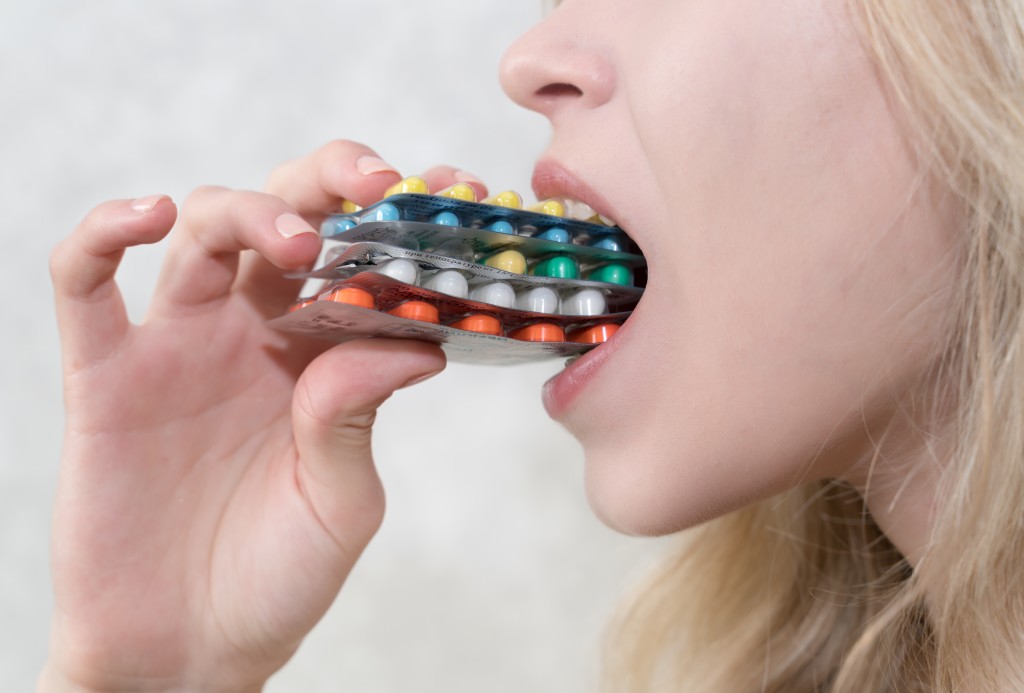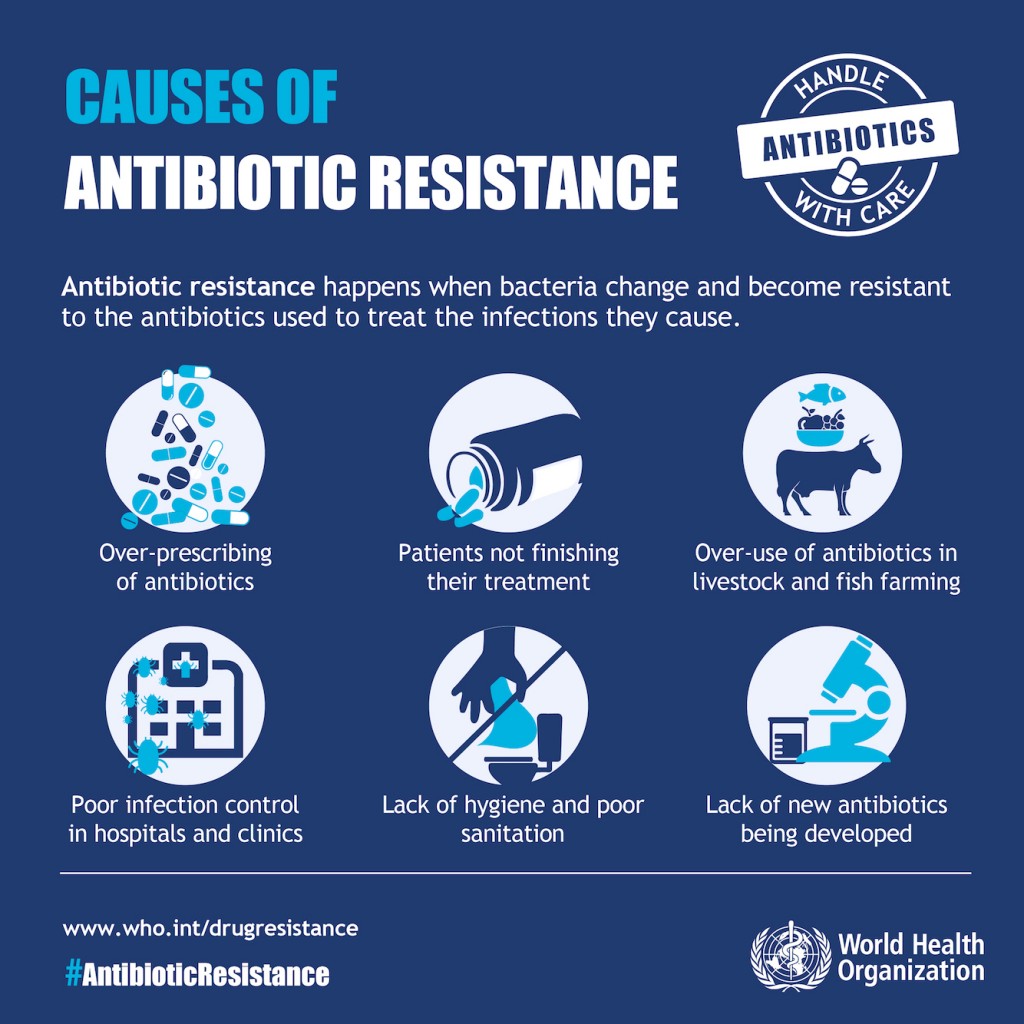
The WHO has warned that antibiotic resistance is one of the greatest threats to human health today – read on to find out why…
Take home points from antibiotics awareness week
- Misusing antibiotics can cause harm
- You could be passing on antibiotic resistant bacteria
- Antibiotics are a precious resource that should be handled with care
What are antibiotics and what do they do?
Antibiotics are medicines used to treat infections or disease caused by bacteria.
Examples of infections caused by bacteria include:
- Urinary tract infections
- Skin infections
- Infected wounds
- Respiratory tract infections such as pneumonia and whooping cough
Antibiotics work by blocking a vital process in bacteria, which either kills them or stops them from multiplying. For example, some antibiotics destroy bacterial cell walls, while others affect the way the bacterial cell works.
What do antibiotics not do?
Antibiotics have absolutely no effect against viruses and viral infections such as cold and flu.
So how do I know if I need antibiotics?
To be absolutely certain that a person needs antibiotics, your doctor would have to take a sample of the afflicted area to have it tested. Without this, your doctor would be making educated guesses based on data from clinical trials suggesting which types of illnesses are likely to benefit from treatment by antibiotics. IF YOU ARE GOING TO A DOCTOR WHO PRESCRIBES YOU ANTIBIOTICS FOR EVERYTHING WITHOUT QUESTION, CONSIDER GETTING A SECOND OPINION.
Certain ailments may benefit from antibiotics, such as Urinary Tract Infections (UTIs). But this doesn’t mean all UTIs are bacterial – it’s just that it is more likely than not that they are. So on balance, your doctor might make the call that antibiotics will help you.
What are the risks of taking unnecessary antibiotics?
The WHO has warned that antibiotic resistance is one of the greatest threats to human health today.
This is where the bacteria that normally would have been killed or prevented from multiplying by the antibiotic change to protect themselves from the antibiotic. In other words – the antibiotic will no longer be effective!
This is a HUGE issue for us in Australia, because we have one of the highest antibiotic prescription rates aroung the world. The more antibiotics are used, the higher the chances that bacteria will become resistant to them!
Antibiotics can also have some unpleasant side effects:
- Stomach problems such as diarrhea, nausea and vomiting
- Thrush infections which can affect the mouth or vagina
- Less commonly they could cause allergic reactions such as hives, fever and breathing problems or ongoing diarrhea.
So it really isn’t worth taking them if they aren’t causing you any benefit
You could be passing on antibiotic resistant bacteria to your friends and family!
If you use unnecessary antibiotics, and an antibiotic-resistant strain of bacteria develops, these can be passed onto people you are in contact with.
So what should I do to stop the spread of antibiotic resistance?
Simple – be part of the solution! You can pledge to reduce antibiotic resistance by committing to the following 5 actions:
- I will not pressure my doctor to give me antibiotics for colds and the flu as they have NO EFFECT on viruses
- I understand that antibiotics will not help me recover faster from a viral infection
- I will only take antibiotics in the way they have been prescribed and when my doctor says I must
- I understand that it is possible to pass on antibiotic resistant bacteria to others
- I will make a greater effort to prevent the spread of germs by practising good hygiene
Remember, you can make antibiotic resistance worse if you:
- Use antibiotics when you don’t need them
- Use old packs of antibiotics for a new infection
- Share antibiotics among friends or family
- Don’t take antibiotics as your doctor prescribes, including the right amount at the right time.
Want more information?
Call (03) 5611 3365 to speak to a friendly patient concierge
or book an appointment here
